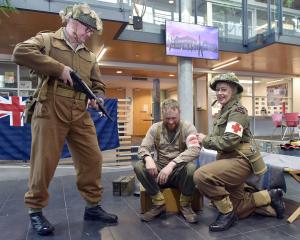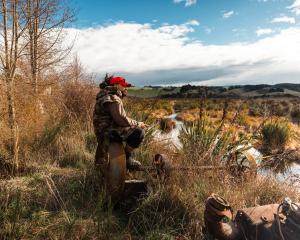
Even for real news junkies, the continuing onslaught of wretchedness is almost too unbearable to cope with.
Yet all we have to do is see it on a screen — it’s not as if we are having to live, and die, through it ourselves.
The bombardment and annihilation of Gaza — as Israel’s leaders and military continue their search to destroy the Hamas terrorists behind the appalling and murderous October 7 attacks — is so hard to watch it is entirely fathomable that the many lucky people sitting far away in the comfort and safety of their own homes choose not to look.
Yet all switching off does is breed ignorance and denial. We absolutely need to know what is happening in the Middle East. We absolutely need journalists there to report on events and tell us the truth. Without that, who knows what darker and even more gory carnage might be unleashed by either side, in the knowledge that nobody is watching?
What can we really be sure of as this awful war carries on?
That Hamas terrorists entered Israel and slaughtered about 1200 innocent people, and still hold more than 200 hostages.
That a shocked and grieving Israel has fought back and is intent on obliterating parts of Gaza where the terrorists are known to live, in the process massacring an estimated 15,000 Palestinians, most of them innocent and including about 6000 children.
That essentials such as fresh water, medicine, food and fuel have not been allowed into Gaza in anywhere near the quantities needed to avoid many further deaths.
That Israeli leaders will not contemplate a ceasefire while Hamas still has hostages.

There are wicked people on both sides, and while many would have known Hamas terrorists are evil, how many realised before that Israel Prime Minister Benyamin Netanyahu and his ilk are just as cruel and bloodthirsty?
We also know that there are good and innocent people on both sides. And that despite their efforts for peace, white flags have their work cut out in standing up to the force of bombs and bullets.
For many of us, the matter of a ceasefire would seem like a no-brainer. Why, when Israel can see how it is flattening Gaza and wiping out a population, and catalysing a breeding ground for the next generation of terrorists, won’t it agree?
In the vacuum left by not having a government, it was good to hear Labour Party leader Chris Hipkins’ call for a ceasefire recently. However, it is a complex matter, and there are compelling arguments on both sides.
Israel seems to be totally unwilling to give any ground on this. Yet, in some ways that is understandable.
If more than 200 New Zealanders, our friends and family, had been snatched by terrorists from a neighbouring state, we possibly wouldn’t be in any busting rush to hand the extremists any potential advantage.
Unfortunately, from this distance, it is easy to oversimplify the situation.
As egregious as the Israeli leadership’s warmongering has been, the decision to murder Jewish people, knowing it would most likely start a war, was Hamas’.
What seems to be missing in this part of the Middle East is a moral compass which points out the sanctity and uniqueness of all human life, regardless of religion or of the country or state people live in.
Whoever finds that will have made a massive stride towards disarming extremism and aggressive jingoism, whether it be by Israeli or Palestinian.











